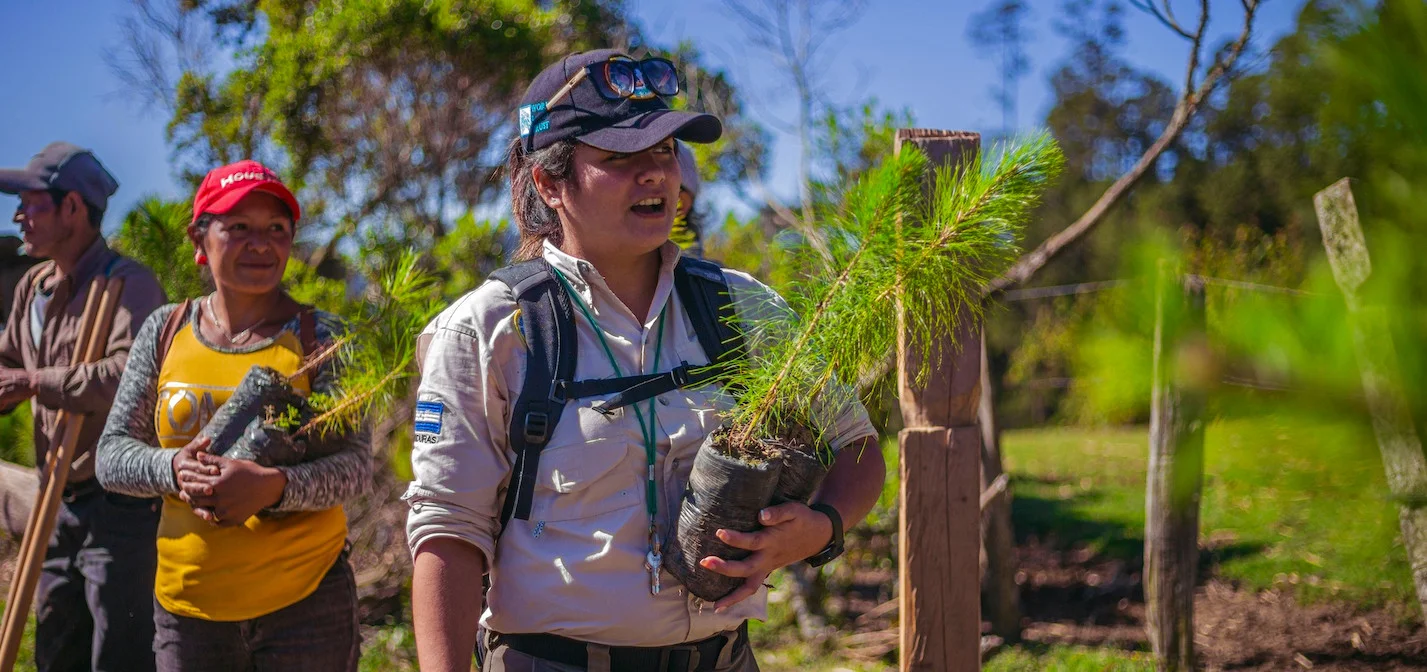Project background
The indigenous Lenca population at the edge of the Pacayita volcano in western Honduras lives self-sufficiently from subsistence agriculture. Many live in poverty. Improper agricultural practices and lack of crop rotation cause erosion, loss of humus, depleted soils and low crop yields. Although partially protected, the surrounding mountain forests are coming under increasing pressure. These forests, however, are of existential importance for the regional water balance and ecosystems. Their disappearance directly threatens the water supply of the local population, who has has few means to act against this threat.
Our solution approach
Our project supports 120 smallholder families to improve farming on their existing land using agroecological methods in such a way that they do not fell any new forest areas. In addition, we strengthen the organisational capacities of the communities, in order to secure their right to control the water conservation areas, through community land purchases. Furthermore, we work on jointly elaborating water and land-use plans with the communities, to ensure the security of water supply for the future.


